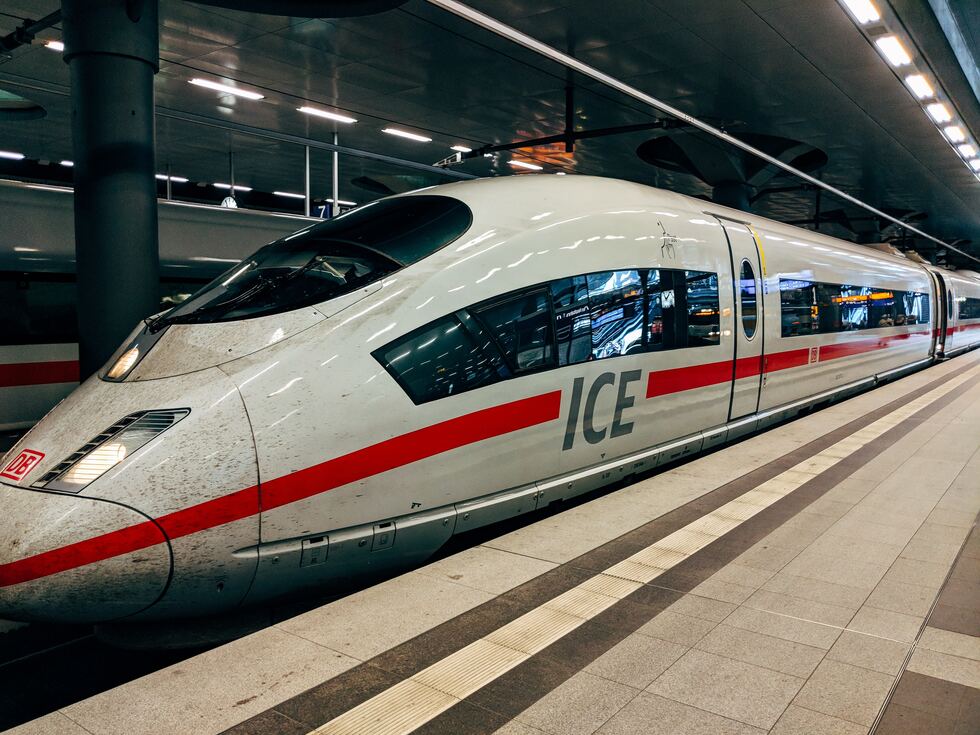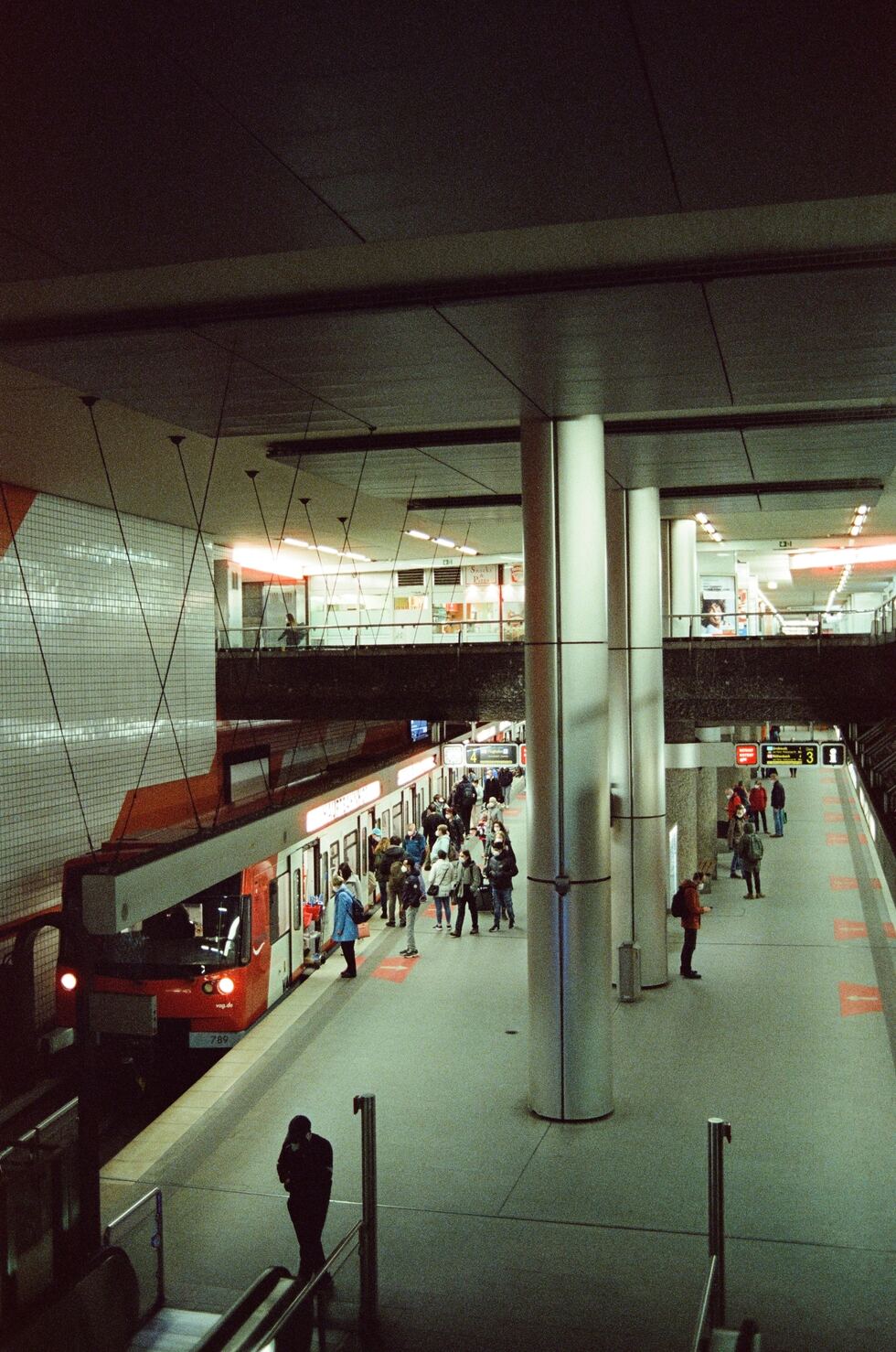
Is the Deutsche Bahn beyond redemption?
In the vibrant heart of Europe, Germany stands as a beacon of precision engineering, innovative spirit, and an unwavering commitment to excellence. These national virtues are emblematic of the country’s achievements, from its automobile industry to its technological prowess. However, amidst these triumphs lies a baffling inconsistency - the Deutsche Bahn. Once hailed as the paragon of punctuality and reliability, Germany’s national railway operator now finds itself at a critical juncture. A slew of whimsical directives from its leadership, coupled with high-profile yet arguably misdirected projects, has eroded its once sterling reputation. Furthermore, a simmering undercurrent of dissatisfaction among its workforce paints a picture of a once mighty institution grappling with existential challenges. As we delve deeper into the intricacies of Deutsche Bahn’s current predicament, one can’t help but wonder: Is this behemoth beyond redemption, or is there a path to regain its lost glory?
A National Mandate: The German Federal Government’s Role in Deutsche Bahn’s Revival
At the heart of Deutsche Bahn’s multifaceted challenges lies an often-overlooked stakeholder: the German federal government. As a majority shareholder, the Bund doesn’t merely hold a financial interest but bears a profound responsibility towards the German populace. The government’s mandate, bestowed upon it by its citizens, is to serve the greater good, ensuring services like the railways are efficient, reliable, and accessible.
However, the multifaceted nature of German federalism introduces additional complexities. Regional interests and local egoisms often overshadow the national perspective. Some Minister-Presidents, driven by their own power-political agendas and lobbying influences, prioritize regional ambitions over the broader national interests. This fragmented decision-making process can impede Deutsche Bahn’s efforts at a comprehensive rejuvenation.
For instance, ambitious projects such as Stuttgart 21, while promising modernity and improved connectivity, have been met with spiraling costs and prolonged construction periods. Such projects often drain resources that could be better utilized to address the immediate needs of daily commuters.
Modernizing the outdated infrastructure, from tracks to signaling systems, is a pressing need. The federal government, with its significant stake and overarching responsibility, is in a unique position to steer Deutsche Bahn’s priorities. It should ensure substantial financial backing for pivotal projects that bolster the nation’s railway backbone.
The palpable unease within the DB workforce is more than an internal challenge; it reflects broader systemic issues. Addressing these concerns isn’t solely Deutsche Bahn’s cross to bear. A joint initiative, where the federal government plays an active role in fostering better working conditions, competitive remunerations, and an environment of growth, can yield positive outcomes.
In the age of digitization, transparency is non-negotiable. Passengers expect real-time information. Facilitating a state-of-the-art communication infrastructure, with real-time tracking and updates, can help bridge the trust gap between Deutsche Bahn and its patrons.
Lastly, while ambition is commendable, it shouldn’t overshadow pragmatism. Deutsche Bahn and the federal government should collaboratively assess ongoing projects, ensuring that resources are channeled where they make the most difference.
To truly catalyze a renaissance, the German federal government must take the reins, realigning priorities, and ensuring that both financial and strategic support is provided. With such backing, Deutsche Bahn can genuinely aspire to reclaim its erstwhile glory and efficiency.
The White Elephant in the Room: Deutsche Bahn’s Grand Illusions and the Tangible Cost of Neglect
Distracted by Grandiosity
In the bustling realm of railways, Deutsche Bahn’s affinity for headline-grabbing mega-projects is evident. Projects like Stuttgart 21, with their spiraling costs and promises of a modern travel experience, often steal the limelight. However, behind these architectural masterpieces lie foundational issues, often overshadowed and sidelined.
One such diversionary tactic is the proposed elevation of luxury standards in the ICE’s first class. While the allure of private compartments and high-end amenities is indisputable, it’s akin to applying a gold leaf to a crumbling edifice. Despite these commendable attempts to enhance onboard luxury, they ring hollow when the journey itself becomes unpredictable due to systemic issues.
Cracks in the Infrastructure
Deutsche Bahn’s infamous 5-minute delays, which frequently snowball into much lengthier setbacks, are emblematic of deeper operational woes. Decades-old signalling systems, tracks crying out for maintenance, and ageing locomotives punctuate the landscape.
The network’s pronounced susceptibility to external threats—terrorism, sabotage, and climatic extremes—further underscores its frailty. The antiquated signalling and communications infrastructure, devoid of modern redundancy, emerges as a pronounced Achilles’ heel.
The Misplaced Priorities
As Deutsche Bahn lavishes attention on the elite experience in its premium carriages, its core responsibility to ensure timely, reliable service to all patrons is left in the lurch. Modernizing the first-class experience is commendable, but not at the expense of addressing foundational issues.
Ensuring plush seats and private ambience in an ICE compartment is a futile luxury if the train itself is perpetually delayed or derailed due to deteriorating track conditions. It’s akin to prioritizing the aesthetics of a house while its foundation crumbles.
The Steep Price of Failure
Commuters are compelled to grapple with a widening chasm between the premium prices levied by Deutsche Bahn and the sub-par service delivered. The lofty promises of EC and ICE trains often remain unfulfilled, leaving passengers disillusioned and seeking alternatives.
This dichotomy is all the more glaring when compared to the punctual, efficient services of neighbouring rail networks in Switzerland and Austria, highlighting Deutsche Bahn’s deep-rooted managerial and operational lapses.
Deutsche Bahn’s path to reclaiming its prestige lies not in superficial enhancements, but in a holistic, ground-up rejuvenation. A paradigm shift in priorities—from mere luxury to foundational reliability—is the need of the hour. The German public, after all, seeks not just comfort but, more importantly, consistency and reliability in their daily commutes.
Economic Implications: The Cost of Unreliability
Delays, cancellations, and a general lack of reliability in rail transportation impact more than just daily commuters and travelers. Every delay can signify potentially missed business meetings, lost working hours, and additional costs for both companies and individuals.
Lags in freight transportation can disrupt supply chains, leading to production delays and missed business opportunities. The damage to the German economy due to such inefficiencies is substantial and accumulates year after year.
Moreover, the trust deficit in Deutsche Bahn has long-term consequences. Tourists may be discouraged from visiting Germany if they hear about the unreliabilities in the rail transport. This, in turn, impacts the tourism sector, a major economic player in many regions of the country.
Investors and international companies might also think twice about investing or expanding in a country where infrastructure, especially rail transport, is perceived as unreliable. This could potentially cost jobs and growth opportunities.
It is, therefore, paramount that the issues facing Deutsche Bahn are addressed not just from a customer satisfaction perspective, but also considering their far-reaching economic implications. A reliable and efficient rail network is not just a matter of comfort and convenience but also an economic necessity for a progressive nation like Germany.
Lessons from Abroad
While Deutsche Bahn grapples with its own set of challenges, it need not look far to find working models of efficient and reliable railway systems. Switzerland’s SBB (Swiss Federal Railways) stands as a testament to what a rail system can achieve with meticulous planning and a robust operational framework. The punctuality of the SBB is world-renowned, with over 90% of its passengers reaching their destinations on time, a feat that Deutsche Bahn can certainly aspire to.
Additionally, the integrated timetable system adopted by Switzerland, where trains, buses, and even boats are perfectly synchronized, ensures seamless connectivity for commuters. Such systems not only optimize resources but also bolster passenger trust and satisfaction. The key to Switzerland’s success lies in its continuous investments in infrastructure, its focus on punctuality, and a commitment to making rail travel a preferred mode of transportation.
To the southeast, Austria watches and waits. ÖBB (Austrian Federal Railways) has made significant strides in recent years and now seeks an integrated and efficient connection to its German counterpart. As it stands, seamless cross-border rail travel between Germany and Austria is vital for both economic and cultural ties. Yet, without Deutsche Bahn rising to meet its potential, this aspiration remains partially unfulfilled. For Austria, an effective and efficient Deutsche Bahn isn’t just a neighbouring enterprise; it’s a critical link that fosters economic growth, tourism, and cultural exchange.
By studying the operational successes of these neighbouring nations, and by actively collaborating with them, Deutsche Bahn can extract lessons of efficiency, reliability, and passenger-centric services. After all, reinventing the wheel isn’t necessary when exemplary models exist just across the border.
Riding in opulence while foundational issues derail progress serves no one. It’s time for Deutsche Bahn to not only introspect but also to look outward, drawing inspiration and best practices from nations that have successfully navigated the complexities of rail travel. Embracing these lessons is not just a strategic move; it’s a step towards fulfilling its commitment to the millions who depend on its services.
An Earnest Plea for Rail Excellence
As an ardent admirer of rail travel, I am often moved by the sheer wonder of trains - a majestic blend of engineering prowess and human ingenuity that connects cities, cultures, and people. To me, the allure of the railways transcends the confines of mere transport; it’s a testament to mankind’s quest to bridge distances and foster unity. Hence, witnessing the decline of the Deutsche Bahn, a once illustrious emblem of punctuality and efficiency, is deeply unsettling.
It’s not merely a matter of timetables and logistics. It’s about the profound promise the railways make to its passengers – a commitment to transport them reliably, efficiently, and safely. For a country that has championed excellence in myriad realms, it is essential that the German rail system embodies these values and stands as a paragon of rail excellence. This entails not just grand visions and ambitious projects but an unwavering dedication to the basics: infrastructure renewal, employee welfare, and operational transparency.
To the stewards of the Deutsche Bahn, I humbly posit this: Your railways are more than steel tracks and locomotives; they are the lifelines of a nation that thrives on mobility and connectivity. I yearn for the day when I, alongside countless others, can once again place our faith in the German rails, confident in the knowledge that our journey will be both punctual and pleasant. Let’s embark on this transformative journey together, rekindling the magic of the railways and ensuring that every journey, no matter how short or long, is a testament to German excellence.
Header Photo by Markus Winkler on Unsplash






